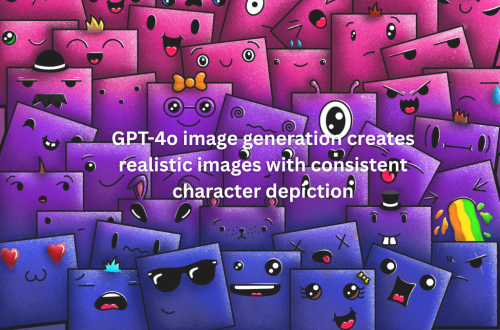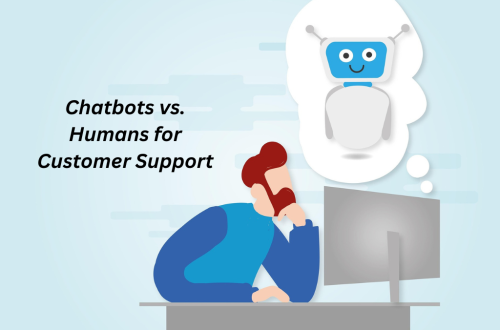
How AI is Revolutionizing SEO: What to Expect in 2024
Leveraging generative AI in SEO has not only revolutionized the marketing landscape but also reduced the manual repetitive tasks, hence letting us focus more on other strategic initiatives to boost productivity. 58% of SEOs are about to integrate generative AI into the areas of Keyword research, topic analysis,
Utilizing AI tools helps to navigate multiple reports, streamlining the process of keyword hunting and pinpointing the actions to rank the given keyword. AI in SEO ensures assistance in clustering keywords and identifying the nuances that need to be addressed. AI has now become paramount to exceed beyond simple keyword matching to cater to your need to dominate market share.
AI tools like Copilot look at large keyword data sets, reducing the hassle of demonstrating experience and authority around a given product set. AI in SEO assists in relating to a concept that the user took as a primary concept, identifying topics, and generating first-draft blog posts that go perfectly well with SEO guidelines.
Benefits of Leveraging AI in SEO
The ever-evolving digital world requires updating content, making 40% of SEO professionals turn to AI for support. The integration of AI helps to refine page titles, and descriptions, reducing manual work, and optimizing keywords for the page, signaling to a broader version of automation. A survey of SEO professionals reveals tha AI advancements and automotive response boost their productivity by freeing up time to focus on more strategic work. Using AI in SEO eliminates the possibility of human error while maximizing the content’s relevancy and viability.
How the Use of AI in Search Optimization is Revolutionizing Marketing Teams
The role of content creators faces consistent transformation. They need to be equipped with generative AI to craft content that keeps aligning with AI-identified search trends.
To do content scaling effectively per search trends identified by AI, this approach enables you to keep your older level of freshness updated over time throughout changes.
SEO teams play a critical role in supporting AI-driven content, ensuring that the produced assets reflect search behaviors and capture some of the intents and nuances highlighted by Google SGE.
SEO Gains
SEO Managers’ roles are getting bigger. According to an estimate, about 90% of the surveyed organizations plan to invest heavily in SEO operations. It’s because the contextual use of AI can automate the optimization processes and free resources for more data mining activities.
At a modest annual growth percentage of 10 for the Google search engine, SEO pros want to take advantage of intent understanding so that they can pair it with the content before presenting anything in text form.
This role offers insights into more effective strategies in an entire organization. SEOs, for example, can help improve product marketing by giving them deeper insights into consumer pain points and preferences.
Marketers got to know how their consumers feel about various suggested colors of products and what mindsets are popular in a variety of industries. These insights improve SEO and increase companies’ reach with customers wherever they consume media.
In many businesses, the use of third-party data is prevalent with little to no consumer contribution. Large language models for generative AI, though, can turn this on its head. Data inputs are then incorporated into those models to get them to work, thus adding some added layers of complication when it comes to using AI.

Scaling Efficiency
Generative AI makes it so that you can do more with less. It automates repetitive processes and outlines basic content so that marketing teams can develop more effective strategies, push the creative envelope, and deliver insightful, useful information.
How AI will Revolutionize the Future of SEO
SEO, like so many industries, has been seeing fantastic AI tech come to light. When AI tech keeps advancing, we expect it to change how SEO works and even impact the way search engines do their business with radically different online presence optimization for firms.
The backbone of search engines like Google is its complex, AI-powered search algorithm that crawls through billions to index and rank web pages based on relevance and authority. The answer lies with AI-powered algorithms and the amelioration of these processes that follow as a result.
For example, search engines use AI (like Google’s RankBrain) to help interpret the seemingly random word strings that users enter into a browser and produce more relevant results. As AI evolves, search engines will likely more frequently rely on general technologies to better understand the intent of searches and deliver even better results.

Advanced Keyword Research and Content Optimization
Keywords research along with content optimization are the basic ingredients of SEO. AI, as a technology invented to break new ground, turns you from time-consuming activities and adds layers of sauce on top by understanding the semantic interrelation between keywords since it recognizes search patterns that motivate user action.
Furthermore, content can be rewritten with an AI-driven utility to make sure that it stays relevant and that you keep the attention of your audience. It can use machine learning to determine your most popular content and where you should focus on improving. Plus, AI also can create meta tags and headings as well as other on-page elements that are important for SEO success.
Improved User Experience
UX plays a key role in SEO as search engines rank you higher, the easier it is for users to navigate your website. By analyzing user behavior data, AI can contribute to improving UX and suggesting personalized content.
Conclusion
As our reliance on AI in SEO continues to increase, so does the importance of ensuring data integrity and compliance. Companies need to manage the data that is fueling their AI tools and make sure these datasets are of high quality. Using AI tools that are built on certain data sets, such as keyword data, is important for SEOs. So we shared some AI game-changing predictions for the future and how it will affect SEO as well as what benefits we can harness from there. But more importantly, is that overall from a business perspective, you should adapt to shifts in the landscape.






One Comment
Pingback: